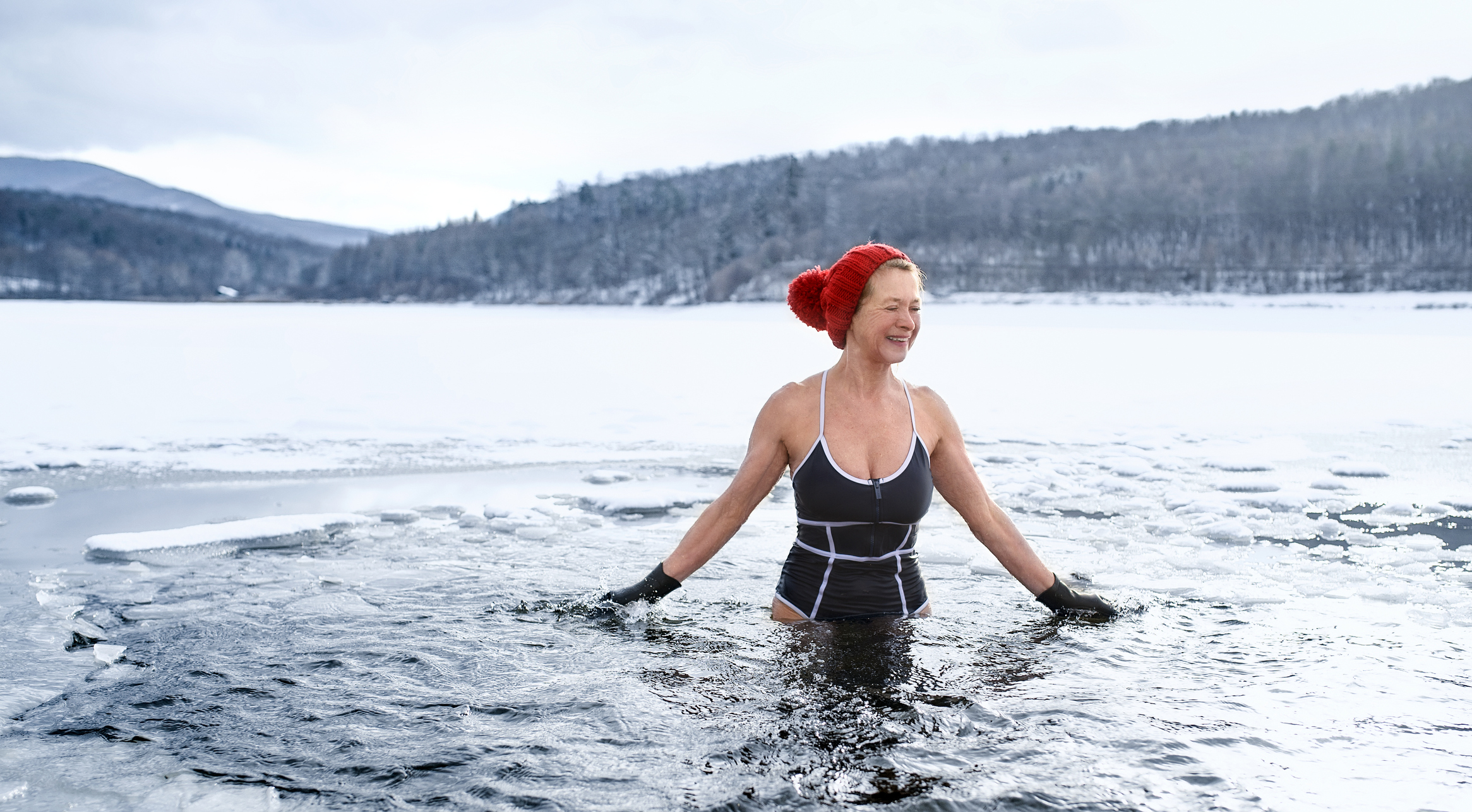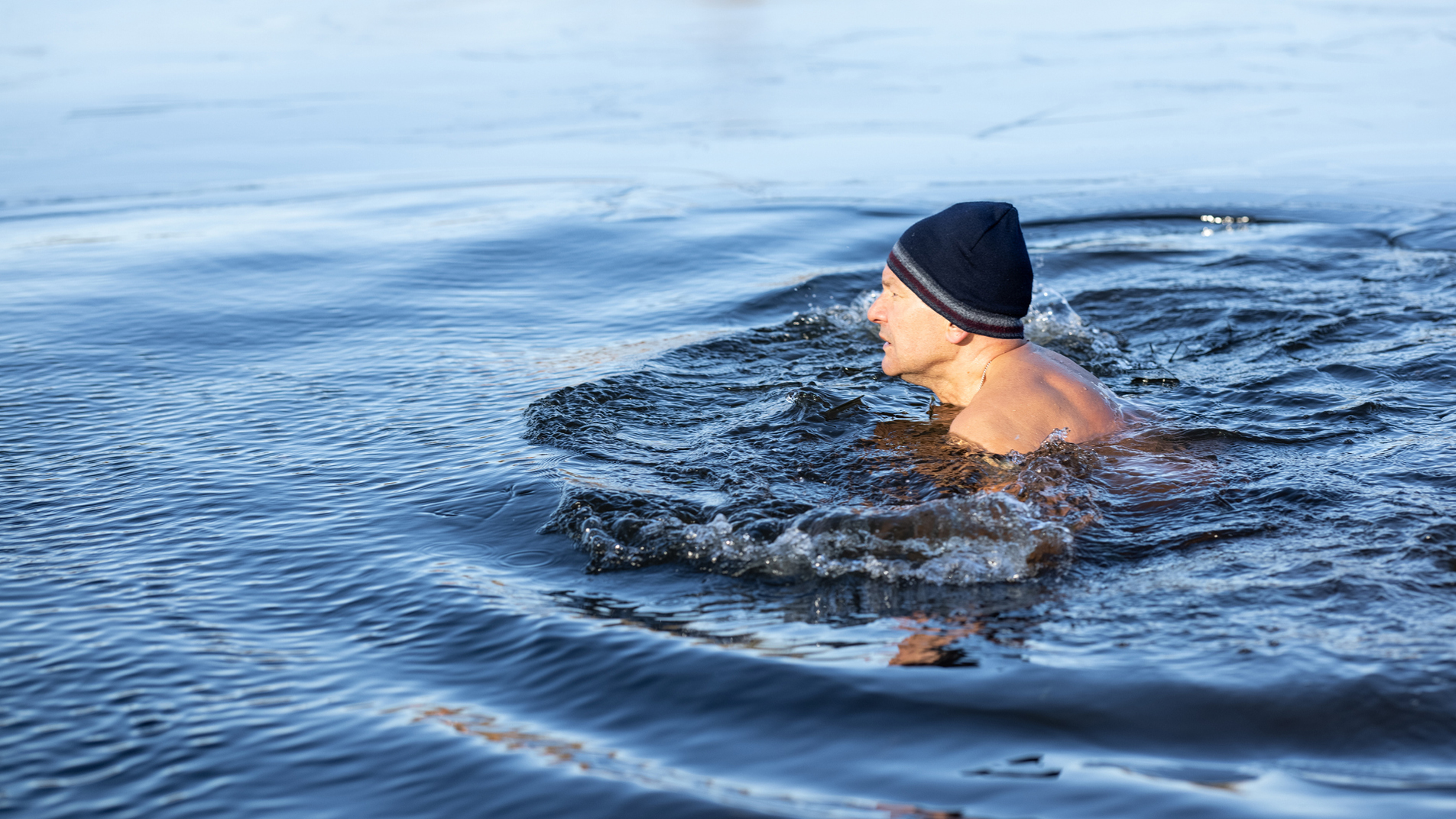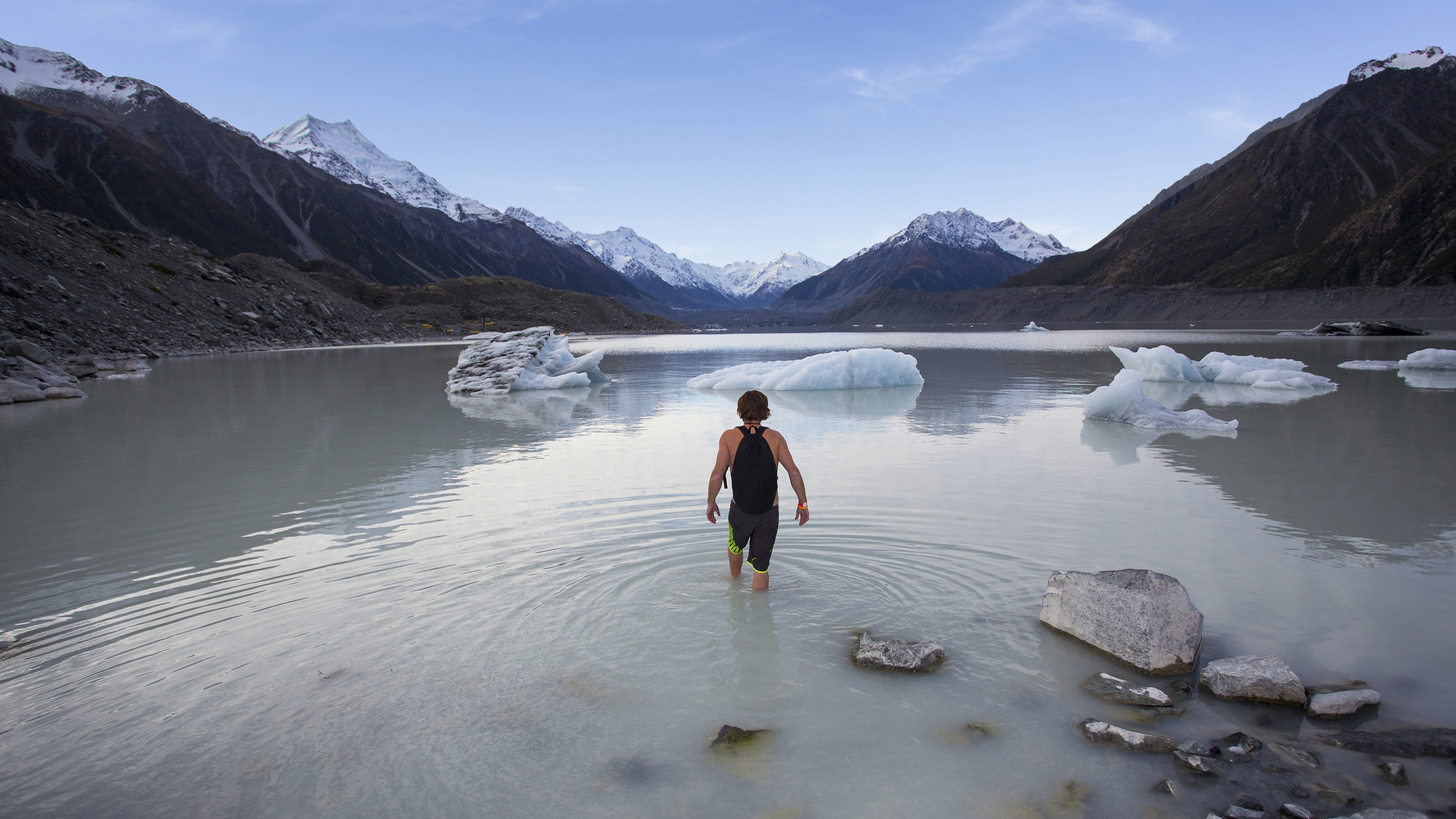Six benefits of cold water swimming
From improved heart health to a better mood, these are all the benefits of cold water swimming


Cold water swimming might not sound very pleasant, but it could improve your heart health, boost your immune system and have a positive impact on your psyche. There's even some evidence to suggest that it could positively affect your body's circulation and speed up your post-gym recovery.
Still not convinced? We asked the experts to break down the main benefits of swimming in cold water, getting input from doctors and performance coaches, so you can feel more confident dipping your toes in the water.
1. It improves your heart health
Your heart gets a good workout when you go cold water swimming because it has to work extra hard to keep you warm. “Colder environments induce shivering to provide heat for the body,” explains Hana Patel, a UK-based doctor. “To do this, the heart has to work harder to provide oxygen through blood to the muscles.”
Plunging yourself in cold water also triggers your fight-or-flight response (your sympathetic nervous system). When this kicks in, adrenaline can flood your body, which causes your heart rate to tick upwards. So regularly taking a cold water dip gives your heart an extra workout.
There's plenty of hard evidence to show that the activity can have a positive impact on your cardio systems, too. If you want the cold hard facts, take a look through the 2020 review of evidence published in the International Journal of Environmental Research and Public Health. It references several studies showing that cold water swimming improves things like blood pressure and decreases the risk of certain heart diseases.

Dr. Hana Patel is an internationally known doctor, women’s health specialist and published researcher. She is also an academic mentor for Health Education England, a General Medical Council examiner and a section editor for InnovAIT, the RCGP medical journal for GP trainees.
2. It reduces anxiety and depression
Cold water swimming can have positive effects on mental health, particularly among people suffering from depression and anxiety.

“Being immersed in cold water increases the production of mood boosting hormones and neurotransmitters—like beta-endorphins, noradrenaline and dopamine—which can improve depression symptoms by affecting the sympathetic nervous system and changing the chemistry in our body and brain,” says Dr. Patel.
Get the Fit&Well Newsletter
Start your week with achievable workout ideas, health tips and wellbeing advice in your inbox.
Basically, cold water exposure can release a lot of feel-good chemicals that will boost your mood.
Laura Hof, who leads an international cold water swimming community, also believes it can have a positive mental impact. She says it can shut down “the part of the brain involved in thinking about yesterday and tomorrow, so it puts you in the here and now. In this sense it is a true meditation practice.”

Laura Hof is a Wim Hof Method Instructor, Holistic Therapist and Founder of Icewomen Community, a worldwide not-for-profit with chapters run by women and for women, promoting the benefits of cold water dipping.
3. It can help with weight loss
Going for a cold water swim can burn a lot of calories, as it forces your body to work hard at regulating your temperature. This can help if you’re trying to create a calorie deficit for weight loss—but there are some more interesting ways in which the activity aids weight loss, too.
A review published in the International Journal of Circumpolar Health found that regularly taking a cold water swim can cut ‘bad’ body fat in men and have a positive effect on ‘good’ fat. The ‘bad’ body fat here refers to white fat, which is used to store energy—excessive amounts of this can increase the risk of heart disease and diabetes. ‘Good’ fat refers to brown fat, which is used to burn energy and calories.
“Cold triggers the production of brown fat, which is different from white fat, in that it can turn quickly into energy and heat,” adds Hof.

4. It boosts your immune system
There's some evidence to show that cold water sessions can improve your immune system—winter swimmers certainly seem to be more resistant to certain types of illnesses. According to Hof, this is because cold water swimming triggers the release of white blood cells, “the soldiers of your immune system.” This is backed up by several studies, including this one from the Journal of Biomechanical Medicine.
There’s a gray area here, as exercise in general has also been shown to improve your immune system, so the positive effects could be down to people moving more. But either way, cold water swimming could help you avoid catching the flu.
5. It could improve circulation
Some experts believe that regularly taking part in cold water swimming could improve your circulation. When we’re cold, our body forces blood into all of our extremities to keep us warm. The theory goes that repeatedly exposing ourselves to the cold will cause the body to become better at this process, so the body will become quicker at circulating blood.

There is some evidence to support this. For example, a small study published in the International Journal of Sports Medicine found that blood-flow improved in athletes after a four-week bout of cold-water immersion after exercise.
6. It may help with sports recovery
Athletes and people who work out every day can benefit from cold water swimming, according to Hof. “Cold water swimming lowers inflammation ensuring a faster recovery from exercise,” she says. The cooler temperatures could also help with muscle soreness.
Some experts also think that cold water exposure could help flush out acidic build-up in the muscles after a particularly tough training session, thanks to the circulatory benefits outlined above. However, research is still ongoing in these areas.
What are the risks of cold water swimming?
There are some risks to consider when going cold water swimming. You could expose yourself to nasty pathogens and pollution in the water, so check in with local authorities to make sure the water has been cleared for swimming.
Cold water swimming can also put your body in immediate danger. “In extreme cases, cold water shock can cause heart attacks, even in the relatively young and healthy, as the sudden cooling of the skin by cold water also causes an involuntary gasp for breath,” says Dr Patel. “Breathing rates can change uncontrollably, sometimes increasing as much as ten times as frequently.
“All these responses contribute to a feeling of panic, increasing the chance of inhaling water directly into the lungs. Cold water swimming is something as with all exercise and sporting activities that people need to be trained for to reduce any risks.”
Maddy Biddulph is a freelance journalist specializing in fitness, health and wellbeing content. With 26 years in consumer media, she has worked as a writer and editor for some of the bestselling newspapers, magazines and websites in the US and UK.
She is also a qualified L3 personal trainer and weight loss advisor, and helps women over 40 navigate menopause by improving their physical and mental strength. At Maddy Biddulph Personal Training, she runs one-to-one and small group training for menopausal women who want to get fit to ease symptoms and feel like themselves again.
-
 I do these two things every day to stay fit and healthy, says the newest star trainer on Chris Hemsworth's fitness app
I do these two things every day to stay fit and healthy, says the newest star trainer on Chris Hemsworth's fitness appHere's how Centr's Korey Rowe trains for longevity
By Sam Rider Published
-
 I thought sports weren't for me, until I realised they're a game-changer for ticking off cardio
I thought sports weren't for me, until I realised they're a game-changer for ticking off cardioI swapped HIIT and running for tennis—and I've never felt better
By Alice Porter Published